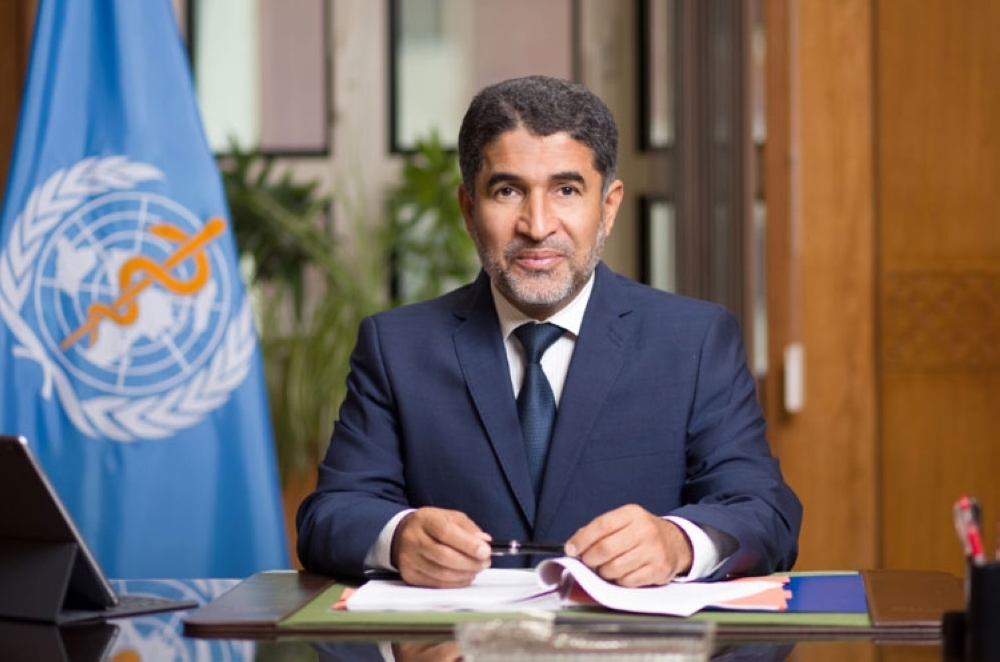

"We remain cautious and concerned as Covid-19 is far from over in our region. We are still observing surges in cases and deaths in 10 countries this week, compared to the previous week," said Dr Ahmed al Mandhari, WHO Regional Director for the Eastern Mediterranean.
Speaking to the media at the regional press briefing, he added that WHO’s Eastern Mediterranean Region has reported almost 16.4 million confirmed Covid-19 cases.
"As of 7 November, we have also tragically marked the death of more than 300, 000 people in our region since the beginning of the pandemic although the overall trend of new cases, hospitalisations and deaths have declined in the last few weeks across the region."
He observed that more lives are put at risk due to premature relaxing of Covid-19 rules, lack of adherence to precautionary measures, public health and social measures, as well as low vaccination coverage.
"We have observed the consequences of these actions in countries in Europe and Central Asia over the past weeks, which have been experiencing an increase in cases as a result. The total number of cases globally is also beginning to edge up again."
In a regional study conducted across all 22 countries, WHO has identified that only 66per cent of respondents reported wearing a mask all or most of the time, and only 78 per cent of respondents reported often washing their hands. Only half of respondents reported keeping at least 2 metres away from people in public all or most of the time.
"This is not how we will end the pandemic. The only certain way to prevent the spread of Covid-19 is by doing it all: getting vaccinated, maintaining physical distancing, cleaning hands, avoiding crowded and closed spaces, and wearing a mask," Al Mandheri added.
The WHO has reiterated people to stay informed with the latest and correct news on Covid-19, and to not give in to fear or rumours. All the latest information about Covid-19, variants, vaccines, and other issues are available with the concerned ministries of health and WHO’s websites and social media accounts.
With more than 417 million doses administered across the region, vaccinations continue to be rolled out and the WHO has set a global target to vaccinate at least 40 percent of the population in every country by the end of 2021.
The study further revealed that as of November 3, 2021, as many as14 countries in the region are on track to achieve this target while eight countries are still lagging, with less than 10 per cent of their populations fully vaccinated. WHO is working with ministries of health and partners to accelerate those vaccination targets.
"While there are several factors preventing countries from achieving wider vaccine rollout including inequity in access to vaccines, conflict, instability, and weak health systems, empowering communities with complete information is critical to building trust and sustaining demand for vaccines and other public health measures," he told the media.
However, the WHO observed a high level of public acceptance of Covid-19 vaccines across the region, with 80 per cent of participants in the regional survey confirming they would accept the vaccine.
WHO concluded that it needed to work with communities and their leaders to build trust and demand for vaccines by addressing any rumours, false information, concerns to ensure improving vaccination coverage.
"The importance of community engagement and participation cannot be underestimated.
By empowering and supporting communities to play an active role in decision-making in the public health response, we can find solutions that incorporate local capacity, resources, and structures, and are far more acceptable, sustainable, and culturally appropriate. This is our vision in the region to ensure “Health for All by All"," Dr Ahmed al Mandhari said.
Oman Observer is now on the WhatsApp channel. Click here


